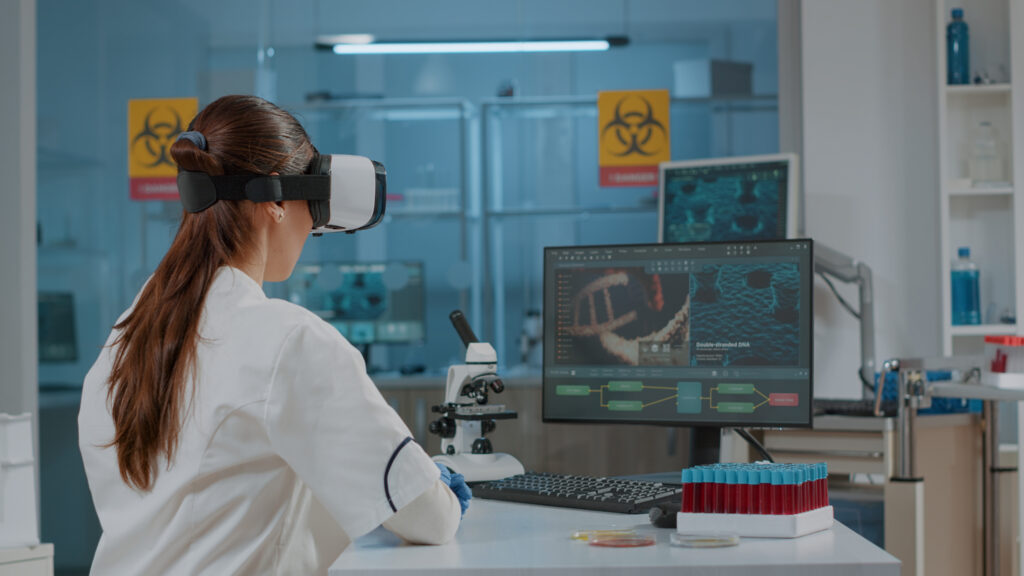Introduction:
The healthcare industry has undergone a significant transformation due to the incorporation of Artificial Intelligence (AI) and Machine Learning (ML) technologies. The integration of these technologies has enabled healthcare providers to deliver improved healthcare services, personalized patient care, and enhanced medical research. The significance of AI in healthcare cannot be overstated, as it offers numerous benefits, including increased efficiency, speed, accuracy, and cost-effectiveness. In this blog, we will explore the various ways AI is transforming the healthcare industry and why it is so important.
Predictive Analytics:
One of the most important applications of AI in healthcare is predictive analytics. Predictive analytics is a technique used to analyze patient data and predict potential health outcomes. Healthcare providers can use AI algorithms to analyze vast amounts of data from electronic health records (EHRs) and other sources to predict the likelihood of a patient developing a particular condition. This information is invaluable to healthcare providers as it enables them to take a proactive approach to patient care, reducing the risk of complications and improving patient outcomes. For example, if a patient is at high risk of developing diabetes, AI algorithms can predict this, and healthcare providers can take preventive measures to avoid the onset of the disease.
Medical Imaging:
Medical imaging is critical in the diagnosis and treatment of many medical conditions. However, interpreting medical images accurately can be challenging, even for experienced healthcare professionals. AI algorithms can help healthcare providers to analyze medical images accurately and quickly, enabling faster and more accurate diagnoses. This technology can also be used to identify anomalies that may be missed by human eyes, leading to improved patient outcomes. Additionally, AI can help to identify patterns in medical images that may indicate the onset of a particular condition, allowing healthcare providers to take preventive measures.
Drug Development:
The drug development process is complex and expensive, with many drugs failing at various stages of development. AI algorithms can help to speed up the drug development process by analyzing vast amounts of data and identifying potential drug candidates more efficiently. By doing so, AI can help to reduce the cost and time required for drug development, enabling new drugs to be brought to market faster and at a lower cost. This can have a significant impact on patient outcomes, as new treatments can become available sooner, and patients can receive better care.
Personalized Medicine:
One of the most significant benefits of AI in healthcare is the ability to deliver personalized patient care and treatment. AI algorithms can analyze patient data and identify individual patient needs, enabling healthcare providers to deliver tailored treatments that are more effective and less invasive. For example, if a patient has a specific genetic mutation that makes them more susceptible to a particular condition, AI can identify this and recommend appropriate treatments. This technology can also be used to identify patients who are at high risk of developing a particular condition, enabling healthcare providers to take proactive measures to prevent the onset of the disease.
Medical Research:
AI algorithms can help to analyze vast amounts of medical research data, identifying trends and patterns that may be missed by human researchers. This technology can help researchers to identify new treatment approaches, disease risk factors, and potential drug candidates. By doing so, AI can help to accelerate medical research, enabling new discoveries to be made faster and at a lower cost. This can have a significant impact on patient care, as new treatments and cures can be developed more quickly, and patients can receive better care.
Conclusion:
The importance of AI in the healthcare industry cannot be overstated. AI has transformed the industry in many ways, from improving patient outcomes to reducing the cost and time required for drug development. As the technology continues to evolve, we can expect to see even more significant changes in the healthcare industry in the years to come.
We strongly believe that AI tools and technologies can work closely with doctors to get much better outcomes for patients, society and overall humanity.

